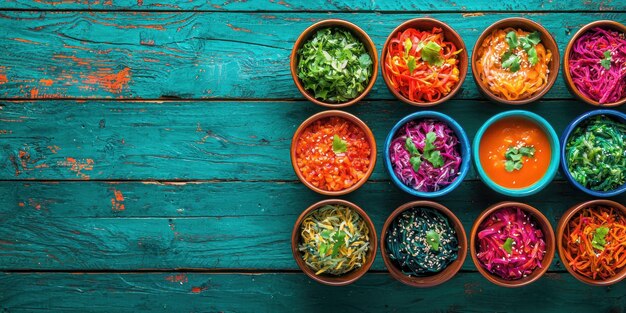
Fermented foods like sauerkraut, kimchi, and kefir are becoming popular, but do they really benefit your health? Thirteen years ago, Donna Schwenk, pregnant with her third child, developed preeclampsia. When her liver started failing, her baby had to be delivered prematurely. Post-delivery, Donna struggled with diabetes, high blood pressure, and extreme fatigue. Desperate for answers, she discovered kefir, a fermented milk drink high in beneficial bacteria.
Donna started adding kefir to her diet and within a few months, her blood sugar and blood pressure normalized. She even gave some to her baby, who quickly gained weight. Donna believes that fermented foods played a crucial role in their recovery. She went on to write a book and participate in a PBS Special on the health benefits of fermented foods, which are also gaining attention from researchers.
Michael Pollan, in his book “The Art of Fermentation,” shares his passion for DIY food fermentation as a way to improve health. LA nutritionist Kimberly Snyder advises her clients to eat fermented vegetables daily, believing they enhance skin, energy, and weight management. Kathie Swift, a clinical nutritionist, also emphasizes the importance of gut health. Her new book highlights how gut bacteria balance affects overall health, including mood and immunity.
Scientific studies support these claims. For instance, replacing the gut bacteria of obese mice with that of lean mice results in weight loss. The gut is also home to the enteric nervous system, producing mood-regulating chemicals like serotonin. Emerging research even suggests a link between fermented foods and mental health.
Our gut hosts about 100 trillion bacteria, both good and bad. As we age, bad bacteria can dominate due to factors like poor diet, stress, and medications. This imbalance can lead to various health issues, from food intolerances to chronic fatigue and skin disorders. Eating fermented foods helps repopulate the gut with good bacteria, which is more beneficial than taking probiotic pills.
Fermented foods have been staple in traditional diets worldwide for centuries. Cultures like Korea and Japan consume various fermented foods believed to aid digestion and boost health. However, moderation and variety are key. Overconsumption can lead to stomach upset. Experts recommend starting with small amounts and gradually increasing intake.
When buying fermented foods, look for products with raw, live cultures. Many store-bought options are pasteurized and lack these beneficial bacteria. Making your own fermented foods is simple and can be done with basic ingredients like vegetables and salt.
Some popular fermented foods include kefir, miso, sauerkraut, and kombucha tea. They can easily be incorporated into your daily diet for improved gut health. Remember to also consume prebiotic foods like onions, garlic, and bananas to support the growth of good bacteria.
In summary, incorporating a variety of fermented foods into your diet can improve digestion, boost immunity, and enhance overall health. Just start slow and enjoy the benefits that come with balanced gut bacteria.